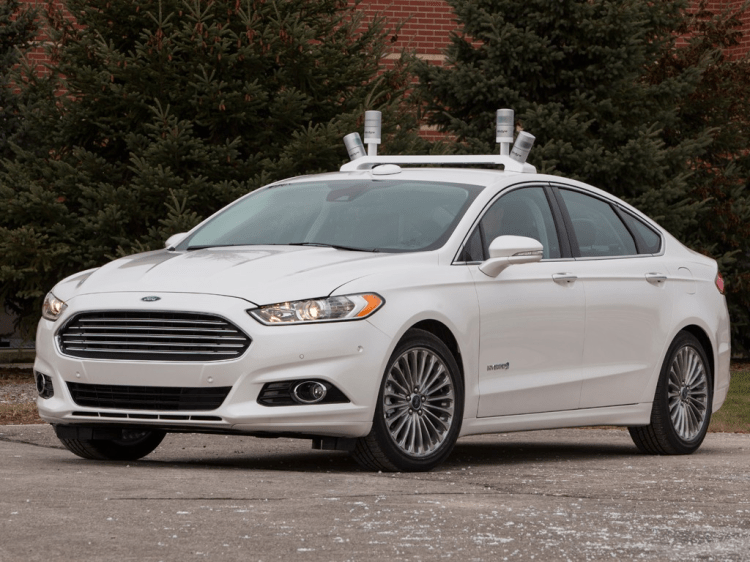Ford is pulling the academic world into autonomous car research because what student doesn’t want a driver-less designated driver.
The car manufacturer partnered with the University of Michigan and insurance company State Farm (thank goodness) to create a “research” version of the Ford Fusion Hybrid sedan. Ford says it is working on making some real headway in driverless vehicles by 2025.
At this point, we’re not terribly far off from driverless autos. A number of self-driving aspects are already in some cars, such as parking-assist features that can even take over the steering wheel and automatic brake functions that can determine when you’re too close to an object and pump the brakes for you.
“We see a future of connected cars that communicate with each other and the world around them to make driving safer, ease traffic congestion and sustain the environment,” Ford executive chairman Bill Ford said in a statement.
The car can monitor what’s going on in the 360 degrees around it at a distance up to a football field (100 yards for our sports-challenged readers) at all times. It has a variety of sensors and lasers that can find obstacles and make 3D maps that “look like what you would see in a high-end video game.”
Ford explains that it hopes the car will play a key role in working through some of the societal, legislative, and technological issues raised by the future of fully automated cars.
One of those issues is the security. Concerns about the technological security of the “Internet of things” is real. Researchers Charlie Miller and Chris Valasek demonstrated at hacker-conference Def Con that they could hack into a Toyota Prius and use those existing automated controls mentioned above to do mess with the driver.
They were able to swerve the steering wheel, pump the brakes unexpectedly, and even tighten the person’s seat belt. Of course, they needed physical access to the car to wire-up their computers, but it shows that vulnerabilities do exist, and as these cars become more Internet-connected and technologically advanced, they’re more susceptible to hackers.
VentureBeat's mission is to be a digital town square for technical decision-makers to gain knowledge about transformative enterprise technology and transact. Learn More

